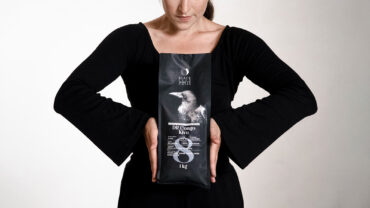While there’s nothing most of us love more than our daily caffeine fix, it’s fair to say there are plenty of statements out there that can make you feel a little hesitant to fill up your cup. From coffee causing insomnia to coffee being highly addictive and whether or not you should avoid it while pregnant, we’ve all heard the warnings that can be associated with drinking coffee, but is there actually any truth to them?
Qualified nutritionist Melissa Kuman has set the record straight and debunked 10 of the most common coffee myths and misconceptions to help put your mind at ease when it comes to indulging in your favourite cup of coffee.
1. Drinking coffee late at night causes insomnia
Melissa’s verdict? There is some truth to coffee keeping you up at night, thanks to caffeine being a ‘stimulant’. She reveals: “This does have some truth behind it as caffeine is a stimulant that makes you feel more alert and can delay the timing of your body clock.
“Although, insomnia may not be due 100% to the coffee. The caffeine in the coffee can impact your sleep, so it is always best to swap to decaf coffee after lunch.”
2. Drinking coffee can stunt your growth
According to Melissa, coffee affecting your growth is simply a myth. She says: “This isn’t true, as there is no strong scientific evidence to suggest this, plus we reach our full height by late teens anyway – an age where it is uncommon to drink coffee.”
3. Coffee is highly addictive
Melissa explains: “This will depend on what you think highly addictive is. People who have coffee as a daily habit may find it hard to give coffee up (just like any habit!) as they feel like they depend on it to wake up and develop a tolerance to it over time, but I wouldn’t say it is highly addictive.”
4. Coffee can help to sober you up after drinking alcohol
If you’re looking for coffee to help sober you up, you might want to reconsider as Melissa shares: “Sadly, this isn’t true. Coffee can’t remove the alcohol from your system or reverse the effects from it but it can help with helping you feel more awake.”
5. Drinking coffee will dehydrate you
This is a common misconception according to Melissa. She says: “This is false for moderate coffee drinking, while caffeine has a mild diuretic effect increasing the need for the toilet, it is unlikely going to dehydrate you.”
6. You can’t drink coffee while pregnant
While some people tend to avoid drinking coffee while pregnant, you are still able to have a limited amount of caffeine per day while expecting. Melissa says: “You can still drink coffee but only up to 200 mg a day (1-2 cups of coffee). It is therefore best to drink decaf coffee while you’re expecting.”
7. Coffee is bad for your health
When it comes to your health, coffee isn’t bad for you when consumed in moderation. Melissa shares: “No, as it is everything in moderation – consuming too much can increase anxiety levels and cause shaking so be aware about how coffee makes you feel. However, if you have sugar or syrup with your coffee every time then excess sugar isn’t good for your health.”
8. Drinking coffee can help you to lose weight
Melissa says: “In the short term, drinking coffee can increase your metabolic rate and therefore increase fat burning but over time people become tolerant to the impact of coffee and it no longer has this effect.
“Coffee impacts everyone differently and for some people it may reduce their appetite, aiding in weight loss.”
9. Decaf coffee doesn’t contain any caffeine
Don’t be fooled that decaf coffee is completely caffeine free. According to Melissa it still contains a little caffeine. She reveals: “Yes, decaf does contain a little bit. The decaffeination process removes around 97% of the caffeine in the coffee beans so there is still a small amount of caffeine in decaf coffee – around 3mg per cup.”
10. Drinking coffee can stain your teeth
Keep in mind that coffee consumption could potentially impact your teeth. Melissa shares: “Yes, coffee can stain your teeth a little as the enamel on your teeth has tiny pores which means the tannins in the coffee can enter these pores leaving deep stains. Plus, as the coffee is acidic it can wear down the enamel, leaving you more prone to staining. To help, you could get your teeth cleaned professionally every 6 months and drink plenty of water in between your coffee.”




